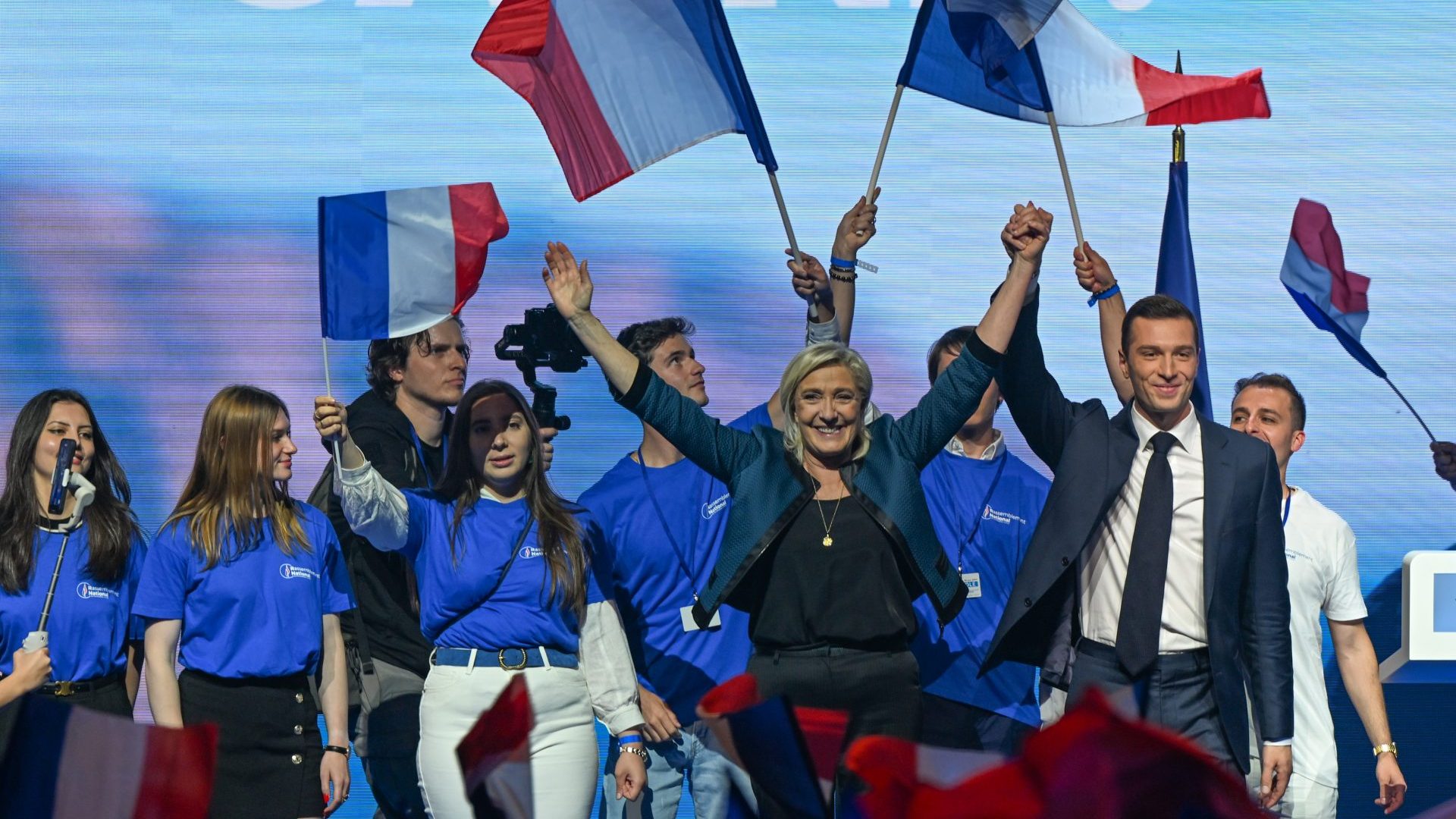At three o’clock in the morning in the suburbs of Grenoble, France, two teenagers set the greengrocers alight. Twenty homes and several other businesses also fell victim to the blaze. The fire started in a rubbish bin. End-of-exam celebrations gone wrong.
“Where were the parents?” my neighbour asks, a loving grandmother with a fondness for floaty clothing. She’d bought me a plant when I first arrived. Its demise is something I’m still trying to hide. “No one gets sent to prison these days,” she says. “They do things like this, and the government just gives them unemployment benefits.”
Such moments are revelations. They should not be. In a France shifting farther and farther right, these opinions are commonplace, a fact June’s European parliamentary elections are almost certain to prove.
France occupies 81 seats of the house’s 720, second only to Germany’s 96. It’s expected most will be filled by far-right candidates. They’ll join the Identity and Democracy coalition, alongside MPs from Germany’s hard right AfD, and the Freedom Party of Austria. The Law and Justice Party of Poland, and the Brothers of Italy – both also from the hard right – prefer to associate themselves with a less radical group.
“Le Penn isn’t a radical,” says Bernadette, another grandmother, as we watch our youthful charges playing with a football. “Her father, he was different, but she’s a real politician.”
I ask what she thinks of Macron. “Oh, he’s such a banker. Have you seen his wife? Twenty years older than him!” I steer the conversation to easier ground. She’s happy to talk about her daughter, who has just married an older man. “The age difference made me hesitate, but she’s happy. If he’d been an Arab, I would have put my foot down.” When I ask why, she heads onto the pitch.
At the university, I diversify my sample group. A doctoral candidate describes the problems for those seeking alternative parties. “People are concerned about migration, and it’s not an issue that’s going away. There’s a real problem on the Left. No one can talk about these things without being attacked. There’s no room for compromise.”
Like any university campus, Grenoble’s has plenty of political graffiti. One artist was particularly succinct, though somewhat oblique: “Macron = assassin”. It’s impossible to tell where they were coming from.
In January, the left criticised Macron’s immigration bill, which proposed withdrawing benefits from immigrants. When this clause was withdrawn for being unconstitutional, the right were strongly critical. The ensuing decision to increase the retirement age to 64 stoked fury across the political spectrum. In May, Macron’s party, formerly La République en Marche, renamed itself Renaissance, just in time for the European elections. The transport minister, Stanislas Guerini, said the name change represented the party’s stance for “Enlightenment against obfuscation”. From the outside, it’s hard not to see this as a last-ditch attempt to smarten up a battered public image – perhaps even to obfuscate.
It’s an understandable tactic. I sit in a sun-drenched classroom with Adèle, a teacher. “The ninth of June is a Sunday,” she says. “Fewer people will vote if the weather’s nice. They’ll go into the mountains and have a day out. If the weather’s bad, they’ll find time to vote.”
She guesses many people will know little about the party they vote for. She herself can’t name the main Green candidate, but in the end, she says, she’ll probably vote that way. The Greens are expected to lose a third of their seats in the European parliament, largely to right-wing parties.
Popularity for Marine Le Penn’s National Rally certainly suggests a lack of interest in EU law. Proposed border checks, restrictions for EU immigrants, and a reduction in the French contribution to the EU budget would cause considerable problems. Even more obvious are the threats to EU security posed by a party with a history of pro-Russian sentiment.
Later, I sit in a café named, in English, “The French Coffee Shop” which serves cappuccinos that look more like ice-cream sundaes. Cautiously stirring stiff foam, I ask my friend, an EU immigrant fluent in five European languages, why even this threat does not get people talking. “People see the EU as an economic system,” she says. “They forget it was set up to stop wars. Right now, it’s an easy power for politicians to blame.”
As a Brit, I have to address the obvious: did the bin-fire of Brexit not warn people off that sort of thinking? “I don’t think [National Rally] wants to do anything really – not like Britain did.”
She shrugs. “I don’t think they want a real break from Europe. But the love’s not there.”










